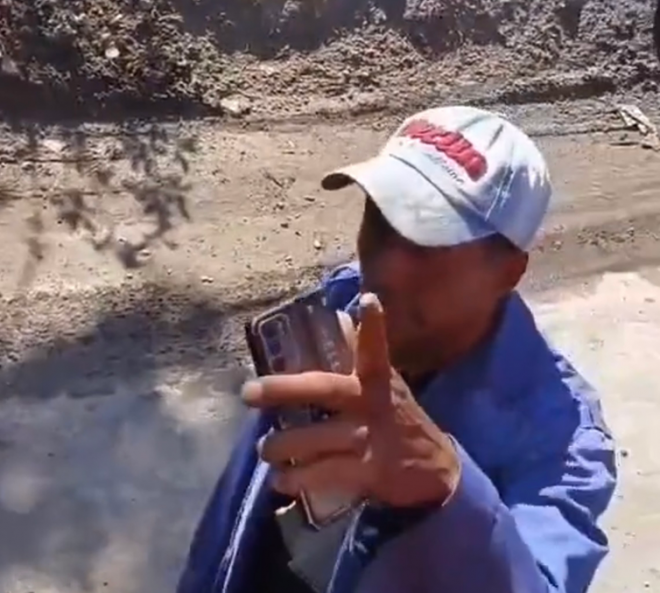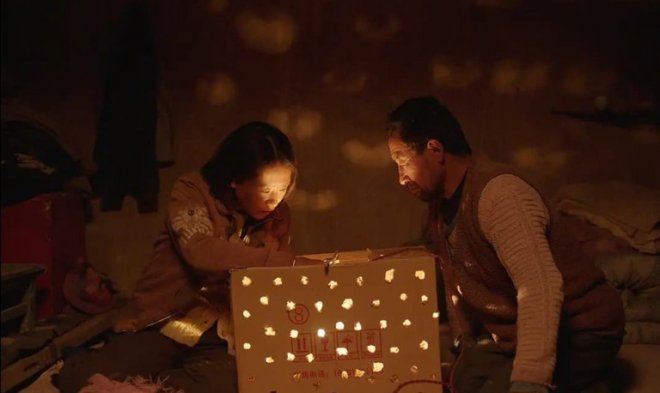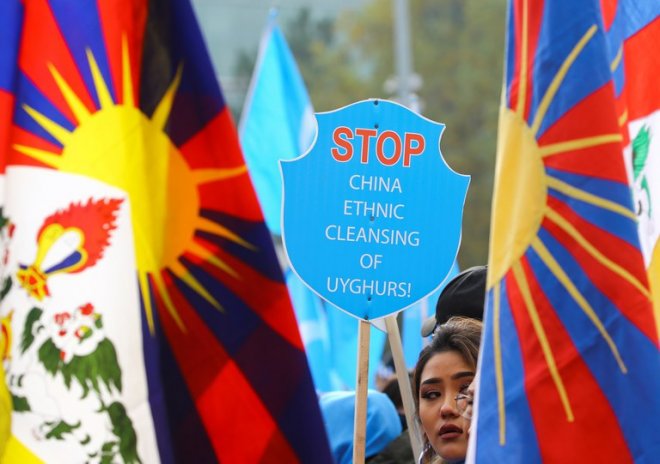Need cash? Go block a road! China’s rural elderly demand money from passing truck
Faced with rising living costs and a tanking economy, residents of China’s rural areas turn to unofficial toll booths to supplement their incomes, according to a recent video clip uploaded to social media.In a video clip filmed from a truck driving from the northern city of Tangshan to Malanzhuang township in the northern province of Hebei and posted by several Twitter users, the truck slows as a tall figure blocks a road, before an older man with a cell phone gestures briefly indicating the price to pass through the unofficial “toll booth.”
“What’s that?” the truck driver says. “Talk to me! One yuan?”
A woman then holds out a phone with a QR code on it, as the driver says: “So we take WeChat Pay here, do we?”
While Radio Free Asia was unable to verify the video independently, commentators said the phenomenon isn’t new, but has likely seen a resurgence amid growing economic hardship in the wake of the three-year restrictions of Communist Party leader Xi Jinping’s zero-COVID policy.
 A long-distance truck driver on the route from Tangshan to Malanzhuang township in Hebei province says that he met more than a dozen farmers who stopped him along the way and asked for “road money” ranging from 1 to 10 yuan. Credit: RFA screenshot from video
A long-distance truck driver on the route from Tangshan to Malanzhuang township in Hebei province says that he met more than a dozen farmers who stopped him along the way and asked for “road money” ranging from 1 to 10 yuan. Credit: RFA screenshot from videoFurther along the same route, the truck pulls up again, to address an elderly woman in a burgundy blouse.
“What is it? Money you want?” the driver calls. The woman nods.
“How much? Five yuan?”
The process is repeated further down the highway, with two older women approaching his cab, waving cell phones and asking for payments of 10 yuan and 5 yuan respectively.
‘Things are going from order to disorder’
Jiangsu-based current affairs commentator and former migrant worker Zhang Jianping said unofficial “tolls” are more commonly found in central and western China, where people are generally poorer.
“These farmers only make 107 yuan a month ... What can you buy with 100 yuan?” Zhang said. “At the same time, retired officials get tens of thousands of yuan a month, while staying in hospital for an entire year, at a cost of several million.”
“Meanwhile, these farmers who’ve spent their lives knee-deep in the soil with their backs bent in the service of their country, what are they supposed to do?”
Last October, ruling Chinese Communist Party censors removed a film about the struggles of a poverty-stricken farming couple from streaming sites ahead of the party congress, prompting a public outcry on social media.
“Return to Dust,” a love story about a couple who marry and eke out a living for themselves from farming despite being rejected by their own communities, has a bleak ending that is out of keeping with government “public opinion” policy, which views media and cultural products as a tool to advance “positive stories” about China.
 A scene from the Chinese rural romance film “Return to Dust.” Credit: Return to Dust
A scene from the Chinese rural romance film “Return to Dust.” Credit: Return to DustChina declared in November 2020 that it had eliminated extreme poverty, claiming success for one of Xi’s key policy goals ahead of the party centenary the following year.
Yet as government-backed employment schemes have focused on getting younger people to seek jobs in cities, elderly people in rural areas have been left to eke a meager living from government subsidies, without the younger generation around to help, and without enough money for decent medical care.
Many are deciding such a life isn’t worth living any more.
New research published in July 2022 and cited by state news agency Xinhua showed that the suicide rate among elderly people in rural areas has risen fivefold over the last two decades
U.S.-based commentator Ma Ju said he first ran into unofficial toll booths in the 1990s, when China’s economic boom had just gotten started.
The fact that they are making a comeback suggests people’s incomes are falling again.
“People don’t have enough for their lives to be sustainable,” Ma said. “The income of officials at the lowest level is limited, and there isn"t much effort to maintain social order.”
“This sort of thing will happen more and more in future,” he said. “Things are going from order to disorder.”
Translated by Luisetta Mudie. Edited by Matt Reed.
[圖擷取自網路,如有疑問請私訊]
|
本篇 |
不想錯過? 請追蹤FB專頁! |
| 喜歡這篇嗎?快分享吧! |
相關文章
AsianNewsCast






















